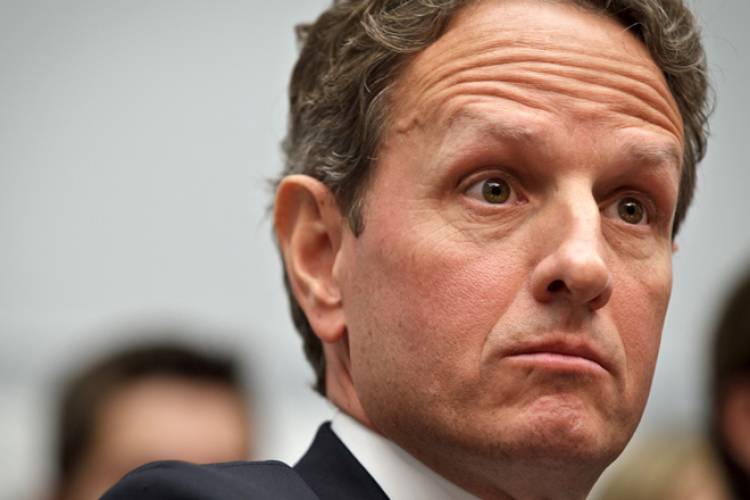This originally appeared on Robert Reich's blog.
I’m trying to remain optimistic that the President and congressional Democrats will hold their ground over the next month as we approach the so-called “fiscal cliff.”
But leading those negotiations for the White House is outgoing Secretary of Treasury Tim Geithner, whom Monday’s Wall Street Journal described as a “pragmatic deal maker” because of “his long relationship with former Treasury Secretary Robert Rubin, for whom balancing the budget was a priority over other Democratic touchstones.”
Geithner is indeed a protege of Bob Rubin, for whom he worked when Rubin was Treasury Secretary in the Clinton administration. Rubin then helped arranged for Geithner to become president of the New York Fed, and then pushed for him to become Obama’s Treasury Secretary.
Both Rubin and Geithner are hardworking and decent. But both see the world through the eyes of Wall Street rather than Main Street.
I battled Rubin for years in the Clinton administration because of his hawkishness on the budget deficit and his narrow Wall Street view of the world.
During his tenure as Treasury Secretary, Geithner has followed in Rubin’s path — engineering a no-strings Wall Street bailout that didn’t require the Street to help stranded homeowners, didn’t demand the Street agree to a resurrection of the Glass-Steagall Act, and didn’t seek to cap the size of the biggest bank, which in the wake of the bailout have become much bigger.
In an
interview with the
Journal, Geithner repeats the President’s stated principle that tax rates must rise on the wealthy, but doesn’t rule out changes to Social Security or Medicare. And he notes that in the president’s budget (drawn up before the election), spending on non-defense discretionary items — mostly programs for the poor, and investments in education and infrastructure — are “very low as a share of the economy relative to Clinton.”
If “pragmatic deal maker,” as the Journal describes Geithner, means someone who believes any deal with Republicans is better than no deal, and deficit reduction is more important than job creation, we could be in for a difficult December.

